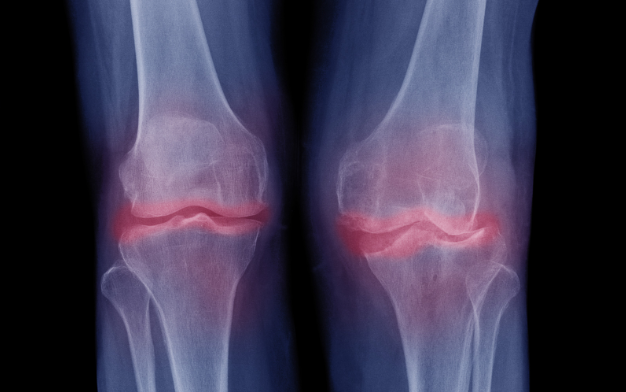
Osteoarthritis is the most common type of arthritis. It is a degenerative joint disease that caused by the wear and tear of cartilage around joints. Without the barrier, we experience inflammation as the bones change shape or grind against each other. This inflammation results in the pain, stiffness, and loss of mobility associated with arthritis. Osteoarthritis can affect people of all ages, even if it is more common in older adults, and range from minor pain to debilitating. For the more serious cases, what are some way to manage extreme osteoarthritis?
1. Lifestyle Changes
While it might seem counter intuitive, exercise is one of the best ways to manage osteoarthritis. Physical activity keeps people from gaining too weight and putting more strain on the joints. It also strengthens the muscles around affected joints at the same time, which helps joint blood flow and mobility. Physical activity and exercise can be a lot of things, too; it does not have to be a drastic lifestyle change! Consider:
- Cleaning the house more often
- Caring for a garden
- Swimming for 30 minutes or taking a water aerobics class at your local pool
- Taking a short walk every day
- Stretching for 15-30 minutes in the morning and at night
2. Diet Changes
Paying more attention to your diet can help manage pain in multiple ways. It is the other proponent to keeping a manageable weight, which has the benefits stated above. However, it can also affect the level of inflammation you experience. Some foods and beverages can cause inflammation, while others are non-inflammatory and contain vitamins, healthy fats, and antioxidants. Some non-inflammatory foods to include in your diet are:
- Fatty Fish
- Leafy Greens
- Berries
- Turmeric
- Ginger
- Nuts and Seeds
- Olive Oil
- Cruciferous Vegetables
- Tomatoes
- Green Tea
- Whole Grains
- Lean Protein
3. Medication
While there is no medication that can “cure” osteoarthritis, you can get medication that will manage the pain and inflammation. Most medications are over-the-counter. These include NSAIDs (aspirin, ibuprofen, naproxen and celecoxib), topical ointments (capsaicin, menthol, or lidocaine), and select analgesics (acetaminophen).
However, for extreme osteoarthritis, doctors may prescribe drugs like opioids, oral corticosteroids, or other drugs on the market that have improved pain symptoms like duloxetine or pregabalin.
4. Injections
Corticosteroids come in an injectable form alongside the oral medication. The injects usually have a faster and more targeted effect as the medication is injected directly into the affected joint. These injections vary in how long they last and can provide relief from a few weeks to a few months.
5. Surgery
For the most extreme osteoarthritis cases, surgery is an option. Joint replacement surgery replaces the affected joint with a metal, plastic, or ceramic joint prothesis. The prothesis acts as a healthy joint and keeps bones from rubbing against each other.
Orthopaedic Doctor in Louisville, KY
If you have extreme osteoarthritis pain or need to consult a doctor for a joint replacement surgery, Dr. Stacie Grossfeld is a double-board certified orthopedic surgeon in Louisville, KY. She specializes in orthopedic surgery, sports medicine, and
If you or someone you love suffers from osteoarthritis in the Louisville, Kentucky-area, board certified sports medicine physician Dr. Stacie Grossfeld at Orthopaedic Specialists PLLC can help. Orthopaedic Specialists PLLC is accepting new patients, and same day appointments are available. For additional information or to schedule an appointment, please contact Orthopaedic Specialists PLLC today at 502-212-2663.

Recent Comments